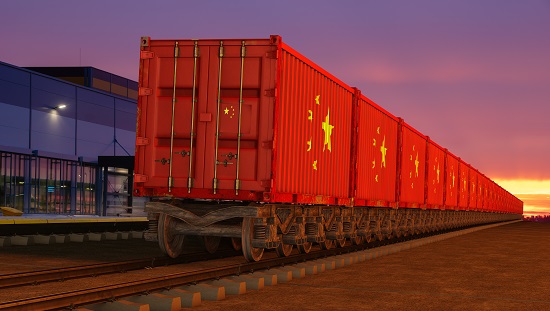
The rise of rail freight has been hailed as one of the silver linings for international trade during the coronavirus pandemic, as freight transport by air and sea have come under price and capacity pressure.
In particular, rail transport of goods along the ‘Silk Road’ route between China and mainland Europe is having its moment.
It’s not hard to understand why. One estimate of travel times for rail from China through Kazakhstan to Russia and then on to cargo holds in Europe is 16 to 18 days, while transport by ocean takes four weeks.
One big fillip for rail from China to Europe was the launch in April of a new service by Maersk, running once a week from Xi’an in China to the port of Izmit in Turkey, as part of the Maersk Intercontinental Rail (ICR) network.
China route rise
New figures from construction company the China Railway Group show that nearly 3,000 trains ran between January and April carrying 262,000 teu, up 24% year-on-year, Loadstar reports.
German logistics company Duisport said the volume of its train journeys from China to Europe in April have increased from an average of 35-40 to 50 per week as it has added more Chinese destinations to coincide with that country’s lockdown being lifted.
UK warnings
In contrast, rail trade press is carrying warnings from UK rail freight operators that the volume of container trains from UK ports will experience “a significant drop” in May and June as exports and imports slow.
Rail magazine yesterday (Thursday, 14 May) reported that the shutdown of Chinese factories and a decline in UK orders to those outlets are now starting to show in diminishing rail freight traffic.
The publication quotes Freightliner as having intermodal volumes at some half normal levels, while GB Railfreight managing director John Smith told Rail:
“Exports are driving away and imports are slowing. Essential materials are still moving. But the shops are closed. In recent weeks, no one has been placing orders with China. And in the UK, factories have not been making anything to export.”



